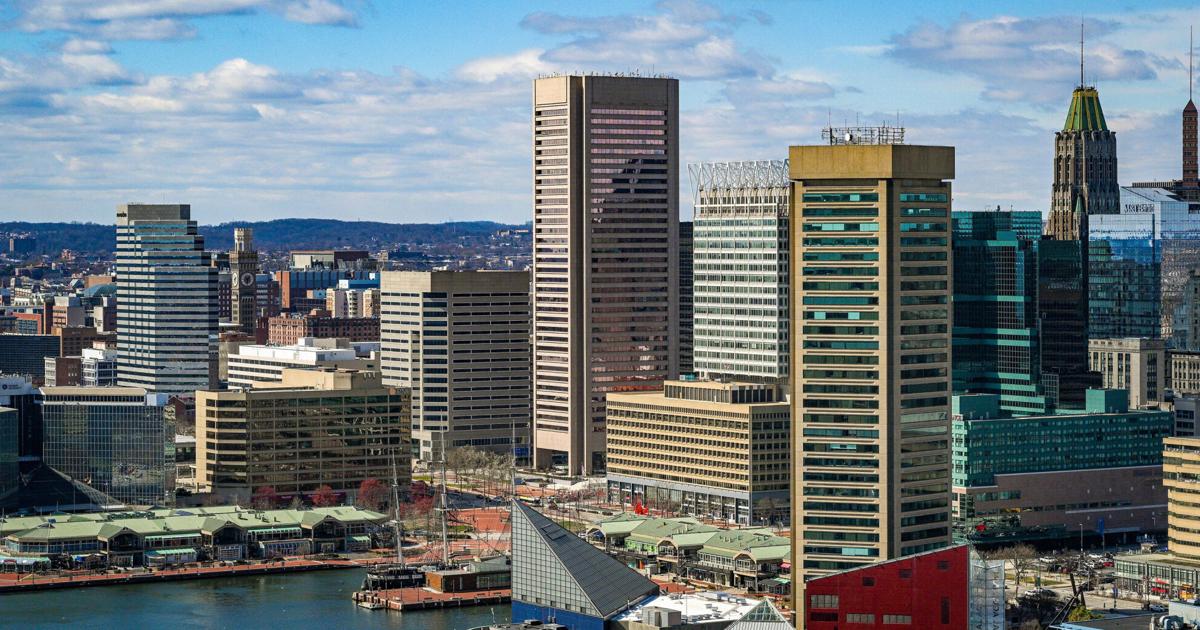
#inform-video-player-1 .inform-embed { margin-top: 10px; margin-bottom: 20px; }
#inform-video-player-2 .inform-embed { margin-top: 10px; margin-bottom: 20px; }
The Baltimore Sun
The Baltimore region has been awarded a federal designation as a national tech hub, which could generate hundreds of millions of dollars of investment and create tens of thousands of jobs.
The region, which includes Baltimore and seven surrounding counties, was selected as one of 31 cities or regions for the federal Tech Hubs Program, putting the area in line for a share of an estimated $500 million in federal funding over five years.
The designation is expected to generate $4.2 billion in economic impact and 52,000 jobs by 2030, according to estimates from the Greater Baltimore Committee, which organized a bid developed by a 38-member consortium of business and technology leaders.
The regional hub plans to focus on artificial intelligence and biotechnology, a combination still in the early stages of adoption. It refers to the use of artificial intelligence and machine learning on health data for applications such as diagnostics and drug development.
Members of Maryland’s congressional delegation said that they expect the tech hub program to jumpstart high-tech industries and entrepreneurs across the Baltimore region.
“This is about creating new jobs and emerging industries for the long term,” said a statement from the delegation’s Democratic members, including Sen. Ben Cardin, Sen. Chris Van Hollen and congressmen Dutch Ruppersberger, John Sarbanes, Kweisi Mfume and David Trone.
Baltimore submitted its application in August to the U.S. Department of Commerce’s Economic Development Administration. A group of area businesses, colleges and universities, workforce development experts, and state and local government officials are expected to work together to develop the hub.
The bid touted the Baltimore region as an established home to more than 400 tech startups with access to federal and academic research and development spending and more than a dozen accelerators supporting companies. The region also has a history of commercialization in medical diagnostics, health care analytics, medical devices, and gene and drug therapeutics, the application said.
The $10 billion federal initiative, approved as part of the CHIPS and Science Act of 2022, aims to spur technology-related manufacturing and commercialization in parts of the U.S. with potential to become globally competitive and create jobs in 10 years.
The program aims to diversify technology investment and development beyond Silicon Valley, Boston and New York, which currently attract 80% of tech funding.
Baltimore’s hub will look to combine artificial intelligence, machine learning and autonomy with biotech, medical technology, genomics and synthetic biology, and to commercialize technologies that can improve health at the individual, community and national levels.
The technology can be used in areas such as clinical decision-making, bioethics, development of personalized medicine and new therapeutics. Other goals include developing advanced biomanufacturing capabilities and developing advanced med-tech manufacturing.
The Baltimore consortium has identified 40 tech-related projects requiring $700 million in funding.
Each of the 31 designated hubs will be eligible to move on to a second phase to apply for funding for specific projects. An initial pool of $500 million of the $10 billion has been allocated to distribute among all hubs in the first phase.
The bid marks one of the GBC’s first big initiatives under the leadership of Mark Anthony Thomas, who steered economic development in Pittsburgh, New York and Los Angeles before replacing longtime GBC CEO Donald Fry in December, taking over a group that merged last year with the Economic Alliance of Greater Baltimore.
#inform-video-player-3 .inform-embed { margin-top: 10px; margin-bottom: 20px; }
